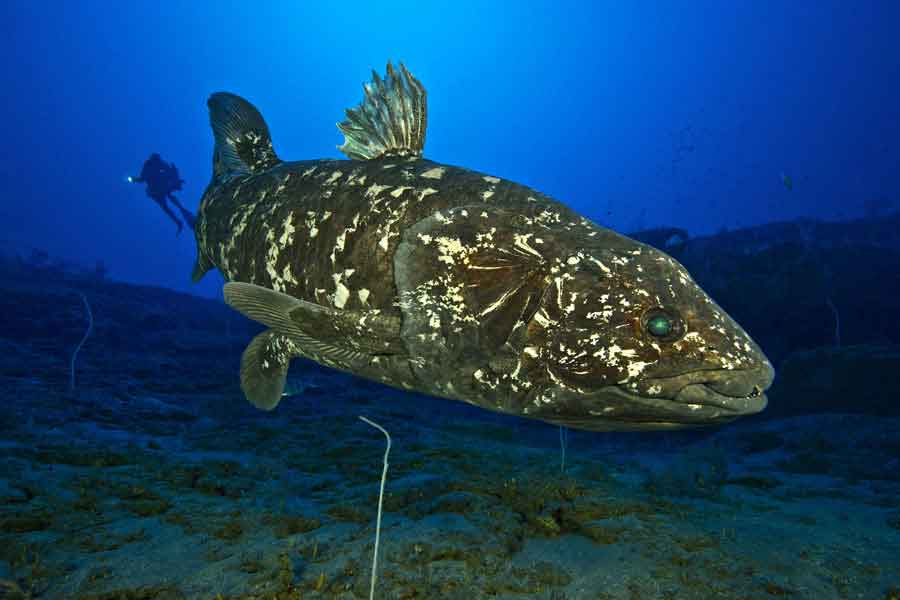
On December 22nd, 1938, it was a sunny day in the surroundings of East London in South Africa. The vessel routinely dragged a net over an unfrequented seabed at a depth of 70 meters. When it was hoisted aboard, it brought over three tons of captured fish. It was then that the astonished sailors saw a fish with a fantastic appearance flapping its fins, a sight zoologists had never seen before. The mysterious animal measured approximately 1.5 meters in length and weighed around 50 kilograms, and it remained alive on the ship’s deck for three hours after the other fish had died. Fortunately, the captain’s curiosity led the strange fish to the East London museum.
There, they were able to identify it as the «Coelacanth,» a fish that paleontologists were familiar with through fossil remains but had considered extinct for at least sixty million years. Three hundred million years ago, during the Devonian Era, fish reigned over the world as the sole inhabitants. It is believed that the Coelacanth, a fish with very special characteristics, was the ancestor of all reptiles, birds, and mammals.
Once the first specimen was found, scientists launched a campaign with local fishermen south of Madagascar, offering rewards for anyone who captured a live Coelacanth. Many years have passed, and not only have many Coelacanths been captured, but also film footage and photographs have been obtained of them in their natural habitat: the deep-sea floor between 100 and 300 meters deep. The anatomical characteristics of the Coelacanth make it an extremely rare fish. It possesses a lung but does not need to surface to breathe. It also has an almost longitudinal heart, an intestine similar to that of sharks with a spiral valve, and a skeleton that is nothing more than a hollow tube of cartilage. The fin rays are also hollow cartilages. Hence the name Coelacanth, which means «hollow spine.»
Even today, zoology has not fully recovered from the impact caused by this remarkable discovery, and for every question that is answered, dozens of new ones arise. The Coelacanth, which existed on Earth even before the first dinosaurs, still survives today, roaming in small groups in the deep sea. Leaning on the seabed with its pectoral fins, like an elderly person walking slowly. A keeper of time. Carrying beneath its skin the secret of the evolution of species, the memories of a world inhabited only by fish.
«You cannot defend what you do not love, and you cannot love what you do not know.»

